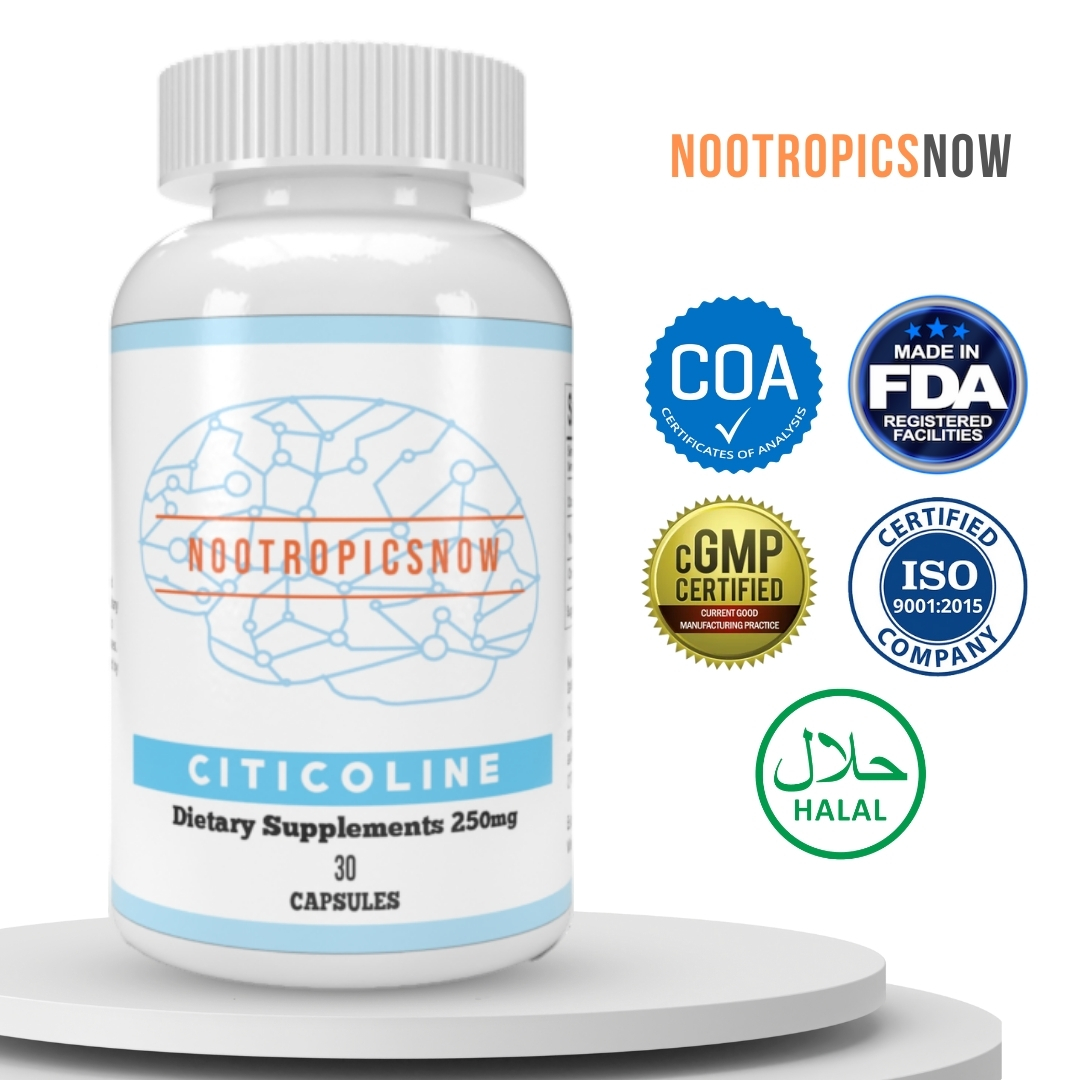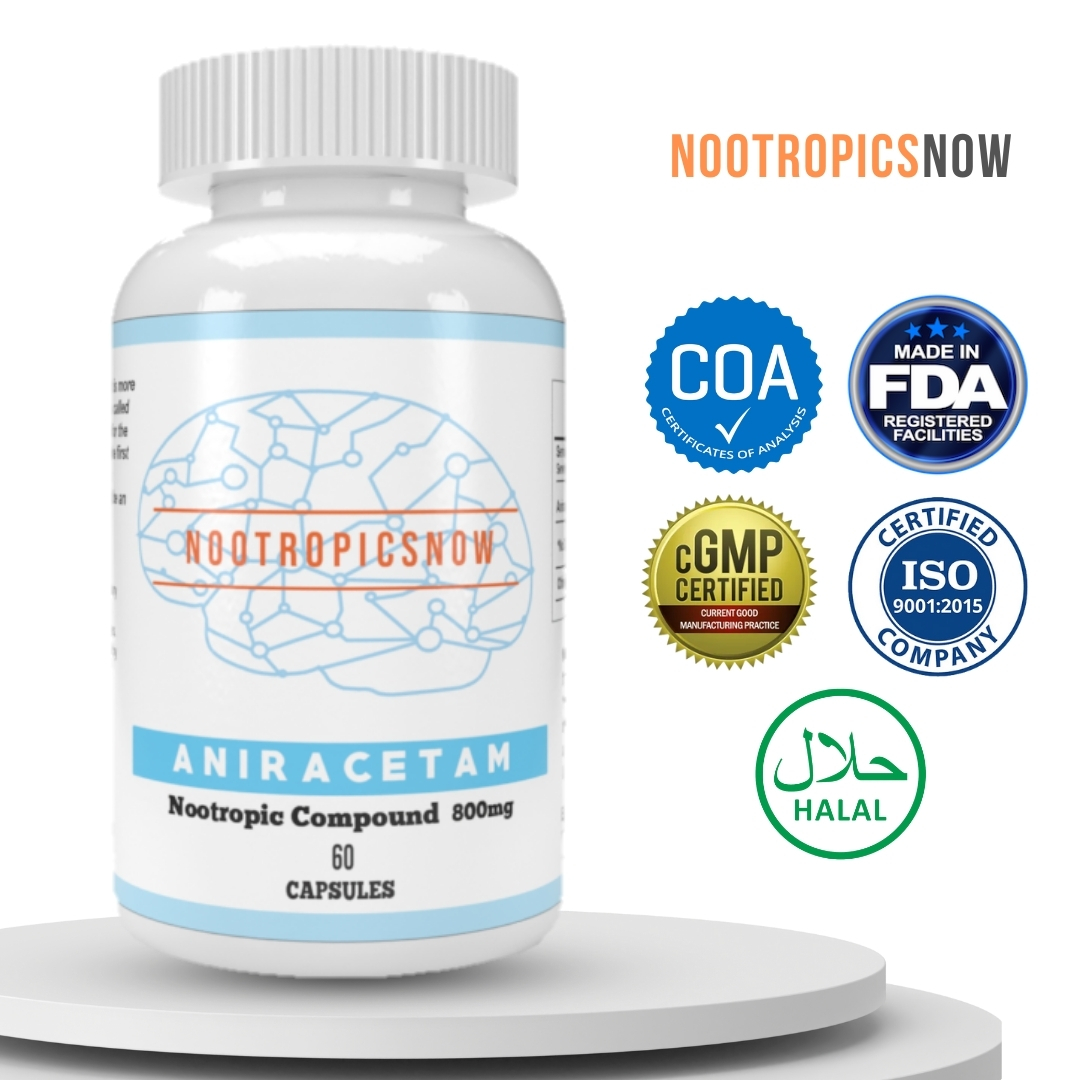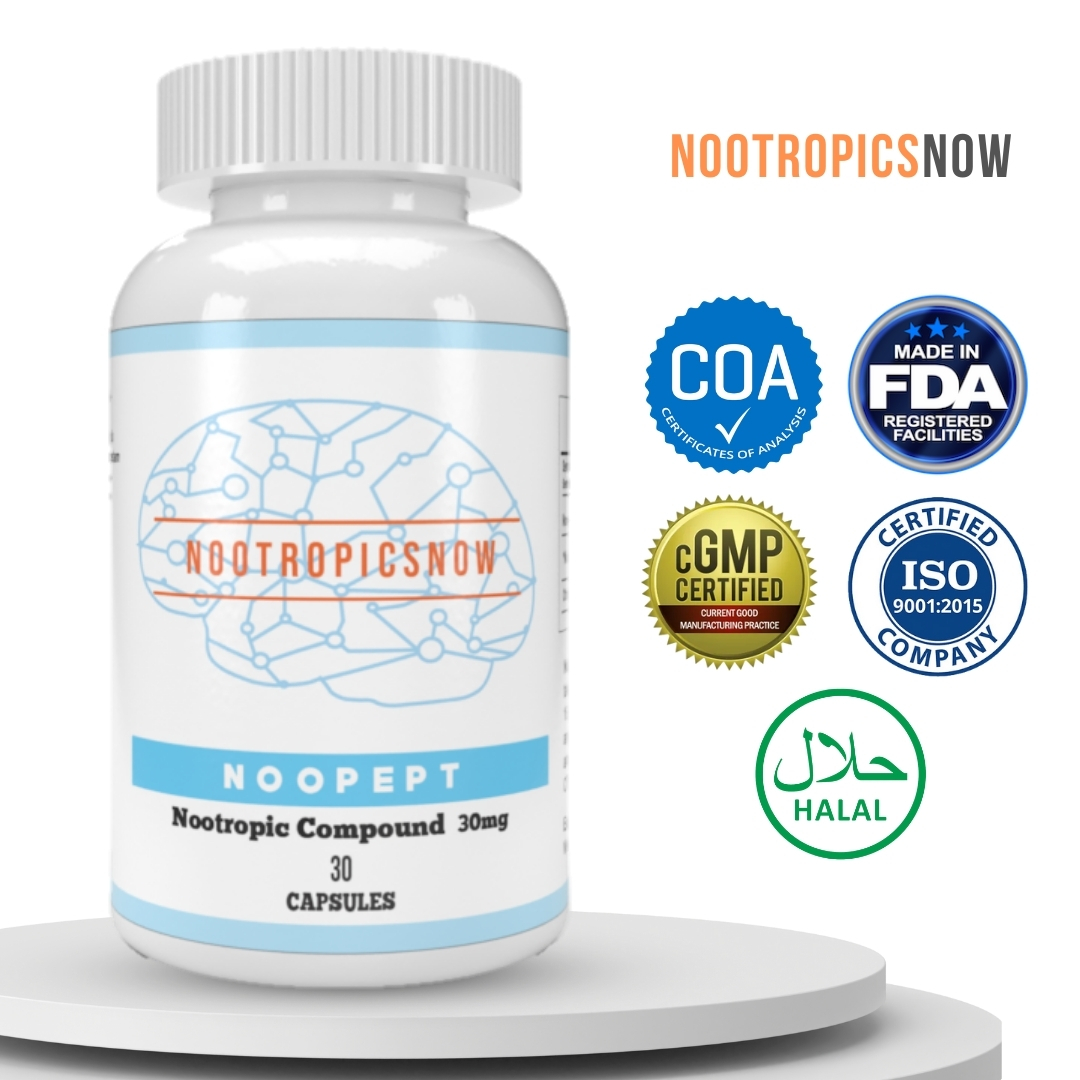Phenylpiracetam: Performance Research

Phenylpiracetam Performance Research: A Comprehensive Overview
Phenylpiracetam, also known as carphedon, is a synthetic nootropic substance derived from piracetam. Consequently, it shares a similar chemical structure but is believed to be significantly more potent. Moreover, phenylpiracetam’s purported benefits include improved cognitive function, enhanced physical performance, and mood elevation. Therefore, this article delves into the current body of research surrounding phenylpiracetam and its effects on various aspects of human performance.
Historical Context and Development

Phenylpiracetam was originally developed in Russia in the 1980s as a medication for cosmonauts to help them cope with the prolonged stress of space travel. Consequently, it was designed to provide both cognitive and physical benefits. Furthermore, its initial applications focused on enhancing mental clarity, focus, and physical endurance in demanding environments. Interestingly, its use extended beyond space exploration, with applications emerging in treating various neurological conditions.
Mechanism of Action
The precise mechanism of action of phenylpiracetam is not fully understood. However, researchers believe it exerts its effects through several pathways. Firstly, it is thought to modulate the activity of neurotransmitters, including dopamine, norepinephrine, and acetylcholine. Subsequently, this modulation can lead to enhanced cognitive function and alertness. Secondly, phenylpiracetam may also improve cerebral blood flow. This potentially leads to increased oxygen and nutrient delivery to the brain, further supporting cognitive function. Indeed, more research is needed to fully elucidate its complex pharmacological profile.
Cognitive Enhancement Studies
Numerous studies have investigated the cognitive-enhancing effects of phenylpiracetam. For example, research has explored its potential benefits in individuals with cognitive impairments. Moreover, some studies suggest that phenylpiracetam can improve memory, attention, and overall cognitive performance in those with conditions like asthenia or organic brain lesions. Additionally, phenylpiracetam’s stimulating properties are thought to contribute to its cognitive-enhancing effects. Consequently, users often report improved focus, concentration, and mental clarity.
However, it’s important to note that much of the existing research on phenylpiracetam is limited, often involving small sample sizes and conducted primarily in Russia. Therefore, further well-designed, placebo-controlled trials are necessary to confirm these findings and determine the optimal dosages for cognitive enhancement. Moreover, the long-term effects of phenylpiracetam usage on cognitive health require more investigation.
Impact on Memory and Learning
One key area of cognitive research focuses on phenylpiracetam’s impact on memory and learning. For instance, studies have explored its ability to improve memory consolidation and recall. Moreover, some evidence suggests that phenylpiracetam may facilitate the formation of new memories and enhance the retrieval of existing ones. This could potentially make it a valuable tool for students, professionals, and anyone seeking to improve their learning abilities.
View Product
Furthermore, its effects on learning have been examined in animal models. Thus, results have shown that phenylpiracetam can improve learning acquisition and retention. Though, generalizing these findings to humans requires caution. Consequently, more human trials are needed to validate these findings and explore the mechanisms underlying its effects on memory and learning.
Effects on Attention and Focus
Attention and focus are crucial components of cognitive performance. As a result, several studies have investigated whether phenylpiracetam can improve these aspects. Correspondingly, some research suggests that it can enhance attention span and reduce distractibility. This potentially makes it beneficial for individuals who struggle with focus and concentration.

View Product
In addition to studies on individuals with cognitive impairments, some research has examined its effects on healthy adults. The results have shown improved attention and reduced mental fatigue during cognitively demanding tasks. Therefore, phenylpiracetam could potentially be used to improve productivity and performance in various professional settings. Further studies are needed to compare its effects with other stimulants and nootropics.
View Product
Physical Performance Enhancement Research
Beyond its cognitive benefits, phenylpiracetam has also been investigated for its potential to enhance physical performance. This stems from its stimulating properties and its ability to potentially reduce fatigue and improve endurance. Consequently, athletes and fitness enthusiasts have shown interest in using phenylpiracetam to improve their physical abilities.
View Product-outdoors-yoga-gym-natural-energizer-mood-i.202321183.10666012546)
Studies on Endurance and Stamina
One aspect of physical performance research focuses on phenylpiracetam’s effects on endurance and stamina. Some studies suggest that it can increase physical endurance and reduce the perception of fatigue. This is particularly relevant for endurance athletes who need to sustain high levels of physical exertion for extended periods.
Moreover, animal studies have shown that phenylpiracetam can improve exercise performance and delay the onset of fatigue. These effects are thought to be mediated by its ability to increase dopamine levels and improve mitochondrial function. Despite this promising evidence, more research is needed to determine the optimal dosages and long-term effects of phenylpiracetam on endurance and stamina in humans.

View Product
Effects on Strength and Power Output
In addition to endurance, research has also examined phenylpiracetam’s impact on strength and power output. Some studies suggest that it can improve muscle strength and power, potentially by increasing motivation and reducing perceived exertion. This can be beneficial for athletes involved in strength-based sports and activities.
Moreover, the stimulating effects of phenylpiracetam may also contribute to its effects on strength and power. By increasing dopamine levels, it can enhance motivation and drive. However, it’s important to note that the effects of phenylpiracetam on strength and power output may vary depending on individual factors. Therefore, larger-scale studies are needed to confirm these findings and explore the mechanisms involved.
View Product-Nootropic-Memory-Booster-Supplement-Focus-i.202321183.3851668485)
Impact on Mood and Motivation
Phenylpiracetam is also known for its potential effects on mood and motivation. Many users report experiencing an increase in energy, motivation, and overall well-being after taking phenylpiracetam. These effects may be attributed to its influence on dopamine and other neurotransmitter systems.

View Product
Studies on Depression and Anxiety
Some research has explored phenylpiracetam’s potential as a treatment for depression and anxiety. While more research is needed, some studies suggest that it may have antidepressant and anxiolytic effects. The exact mechanisms underlying these effects are not fully understood. However, it may involve its ability to modulate neurotransmitter activity and improve cerebral blood flow.

View Product
It is essential to note that phenylpiracetam is not a replacement for traditional treatments for depression and anxiety. Therefore, individuals with these conditions should consult with a healthcare professional before using phenylpiracetam. Furthermore, its long-term effects on mood and mental health require further investigation.
Effects on Stress Response
Stress can have a significant impact on cognitive and physical performance. Some research suggests that phenylpiracetam may help to mitigate the negative effects of stress by modulating the stress response.
Moreover, animal studies have shown that it can reduce the levels of stress hormones like cortisol. This could potentially help to improve resilience to stress and maintain cognitive and physical performance under pressure. Though, more human studies are needed to confirm these findings and determine the optimal dosages for stress management.

View Product
Dosage and Administration
The optimal dosage of phenylpiracetam can vary depending on individual factors such as weight, age, and sensitivity. In general, a common starting dose is 100-200 mg, taken one to three times per day. It is generally recommended to start with a low dose and gradually increase it as needed.
Phenylpiracetam is typically taken orally, either in capsule or powder form. It is also recommended to take it with food to improve absorption and reduce the risk of gastrointestinal side effects. It is generally advised to avoid taking phenylpiracetam late in the day, as its stimulating effects can interfere with sleep.
Safety and Side Effects
Phenylpiracetam is generally considered safe when taken at recommended dosages. However, like any substance, it can cause side effects in some individuals. Common side effects include headache, insomnia, anxiety, and irritability.
Moreover, some users may experience tolerance to phenylpiracetam with prolonged use, meaning that they need to take higher doses to achieve the same effects. It is also important to be aware of the potential for interactions with other medications or supplements.
Individuals with underlying health conditions should consult with a healthcare professional before taking phenylpiracetam. Furthermore, pregnant or breastfeeding women should avoid using it due to the lack of safety data in these populations.
Legal Status and WADA Ban
The legal status of phenylpiracetam varies depending on the country. In some countries, it is available as a prescription medication. Whereas, in others, it is sold as a dietary supplement or research chemical.
It is also banned by the World Anti-Doping Agency (WADA) for use in competitive sports. This means that athletes are prohibited from using phenylpiracetam both in and out of competition. The ban is due to its potential performance-enhancing effects and the risk of unfair advantage.
Conclusion
Phenylpiracetam is a synthetic nootropic substance with potential cognitive and physical performance-enhancing effects. Research suggests that it can improve memory, attention, focus, endurance, and mood. Therefore, it has gained popularity among students, professionals, and athletes.
However, it is important to be aware of the limitations of the existing research and the potential for side effects. Moreover, the legal status and WADA ban should also be considered. Individuals considering using phenylpiracetam should consult with a healthcare professional to determine if it is appropriate for them. Finally, further research is needed to fully understand its mechanisms of action and long-term effects.
Phenylpiracetam Performance Research: A Comprehensive Overview
Phenylpiracetam, also known as phenotropil, is a synthetic nootropic substance derived from piracetam. However, unlike its parent compound, phenylpiracetam boasts an added phenyl group, which researchers believe significantly impacts its pharmacological activity, including its enhanced ability to cross the blood-brain barrier. This structural difference is thought to contribute to its purported stimulatory and cognitive-enhancing effects, making it a subject of growing interest within both the scientific community and among individuals seeking to optimize their performance.
Understanding Phenylpiracetam’s Mechanism of Action
The precise mechanisms through which phenylpiracetam exerts its effects are still being investigated; however, several pathways are believed to be involved. It is crucial to remember that more research is still needed. Researchers propose that it modulates neurotransmitter systems, influencing the levels and activity of key brain chemicals like dopamine, norepinephrine, and acetylcholine. These neurotransmitters are crucial for cognitive processes such as memory, focus, and attention.

View Product

View Product

View Product
Furthermore, phenylpiracetam exhibits neuroprotective properties in animal studies, suggesting its potential to safeguard brain cells from damage caused by oxidative stress and excitotoxicity. Further research is needed to confirm these findings in humans.
Cognitive Enhancement: Exploring the Evidence
One of the primary reasons for phenylpiracetam’s popularity is its reported ability to enhance cognitive function. Studies and anecdotal reports suggest that it may improve memory, attention span, focus, and overall mental clarity.
However, it is important to acknowledge that the existing research is limited and that more rigorous studies are needed to fully understand the extent and consistency of these cognitive effects. It is also worth noting that individual responses to phenylpiracetam can vary significantly.
Physical Performance: Unveiling the Potential
Beyond its cognitive benefits, phenylpiracetam has also garnered attention for its potential to enhance physical performance. Studies have investigated its effects on endurance, stamina, and resistance to fatigue.
Phenylpiracetam may improve tolerance to cold temperatures. However, its potential ergogenic effects have led to its ban by the World Anti-Doping Agency (WADA) in competitive sports.
Research Studies and Clinical Trials
Several research studies have investigated the effects of phenylpiracetam on cognitive and physical performance. These studies have provided valuable insights into its potential benefits and mechanisms of action.
Dosage and Administration Guidelines
The appropriate dosage of phenylpiracetam can vary depending on the individual, the desired effects, and the presence of any underlying medical conditions. It is always advisable to start with a low dose and gradually increase it as needed, while closely monitoring for any adverse effects.
It is crucial to consult with a healthcare professional before taking phenylpiracetam, especially if you have any pre-existing medical conditions or are taking other medications.
Potential Side Effects and Risks
While phenylpiracetam is generally considered safe when taken at recommended doses, it can cause side effects in some individuals. The most common side effects include:
View Product-Nootropic-Brain-Support-Booster-Memory-Sleep-Supplement-i.202321183.5451568422)

View Product
It is crucial to be aware of these potential side effects and to discontinue use if they become bothersome or severe. Individuals with pre-existing anxiety disorders or insomnia should exercise caution when taking phenylpiracetam.
Legal Status and Availability
The legal status of phenylpiracetam varies depending on the country. In some countries, it is available as a prescription medication, while in others, it is sold as a dietary supplement or research chemical.
The availability of phenylpiracetam can also vary depending on its legal status. In countries where it is not approved, it may be difficult to find or may only be available through online vendors. Due diligence is required to ensure product quality and legitimacy when purchasing from online sources.
Phenylpiracetam vs. Other Nootropics
Phenylpiracetam is one of many nootropics available on the market. Other popular nootropics include piracetam, aniracetam, oxiracetam, and noopept. Each of these substances has its unique properties and mechanisms of action.
Phenylpiracetam is often considered to be more potent than piracetam due to its added phenyl group, which allows it to cross the blood-brain barrier more easily. It is also thought to have more pronounced stimulating effects than other racetams.
User Experiences and Anecdotal Reports
In addition to research studies, anecdotal reports from users provide valuable insights into the effects of phenylpiracetam. Many users report positive experiences, including:











